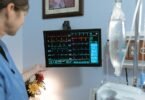The Netherlands, known for its advanced healthcare system, picturesque landscapes, and high quality of life, is an attractive destination for nurses seeking international career opportunities. With a growing demand for skilled healthcare professionals due to an aging population and workforce shortages, the Dutch healthcare sector offers numerous nursing jobs with visa sponsorship in 2025.
This comprehensive guide explores the opportunities, requirements, visa processes, and strategies for securing nursing jobs in the Netherlands, providing international nurses with a roadmap to a rewarding career in this vibrant European nation.
The Demand for Nurses in the Netherlands
The Dutch healthcare system is renowned for its efficiency, accessibility, and high standards of care, consistently ranking among the best in Europe. However, the country faces a significant shortage of healthcare professionals, particularly nurses, driven by an aging population and increasing healthcare needs. According to industry reports, the Netherlands requires thousands of additional nurses annually, with projections indicating a shortfall of up to 125,000 healthcare workers by 2030. This demand creates a unique opportunity for international nurses, as many Dutch hospitals, clinics, and care facilities are willing to sponsor visas to attract qualified talent.
Nursing roles in the Netherlands span various settings, including hospitals, nursing homes, home care, and specialized clinics. The country’s commitment to patient-centered care and advanced medical technology makes it an ideal environment for nurses to grow professionally while enjoying a balanced lifestyle. Visa sponsorship programs, such as the Highly Skilled Migrant (HSM) visa and employer-sponsored work permits, further facilitate the entry of foreign nurses into the Dutch workforce.
Types of Nursing Jobs Offering Visa Sponsorship
1. Hospital Registered Nurse
Hospital nurses in the Netherlands work in dynamic environments, providing acute care, surgical support, and patient management in renowned institutions like BovenIJ Ziekenhuis, Alrijne Hospital Leiden, and Slingeland Hospital. These roles often involve working in departments such as emergency care, intensive care, or general wards.
Responsibilities:
- Administering medications and treatments as prescribed.
- Monitoring patient conditions and updating medical records.
- Collaborating with doctors and interdisciplinary teams to develop care plans.
- Providing emotional support to patients and families.
- Ensuring compliance with Dutch healthcare regulations and protocols.
Requirements:
- Bachelor’s degree in nursing or equivalent (recognized by the Dutch government).
- Registration with the Dutch BIG register (Beroepen in de Individuele Gezondheidszorg).
- At least 1-2 years of clinical experience in a hospital setting.
- Proficiency in English; Dutch language skills (B1 level or higher) are often required or learned post-arrival.
- Ability to pass a medical and background check.
Salary Expectations:
Hospital nurses earn between €4,000 and €8,000 per month, depending on experience, specialization, and location. Benefits include health insurance, paid leave, and pension contributions.
Visa Sponsorship:
Employers often sponsor Highly Skilled Migrant (HSM) visas or employer-specific work permits, which require a minimum salary threshold (approximately €4,752 gross per month for those over 30 in 2025). Some hospitals also offer relocation support and Dutch language training.
2. Home Care Nurse
Home care nurses provide medical and personal care to patients in their homes, supporting elderly or chronically ill individuals. Companies like Buurtzorg Nederland, a leader in community-based care, frequently hire international nurses and offer visa sponsorship.
Responsibilities:
- Assisting with daily activities such as bathing, dressing, and mobility.
- Administering medications and monitoring health conditions.
- Coordinating with family members and healthcare providers.
- Educating patients on self-care and disease management.
- Documenting care plans and patient progress.
Requirements:
- Nursing diploma or degree recognized in the Netherlands.
- BIG registration or eligibility to apply.
- Experience in community or home care nursing (preferred but not mandatory).
- Basic Dutch language skills (B1 level) for patient communication.
- Valid driver’s license for home visits in some regions.
Salary Expectations:
Home care nurses earn approximately €3,500 to €6,500 per month, with additional allowances for travel and overtime. Benefits often include flexible schedules and training programs.
Visa Sponsorship:
HSM visas or employer-sponsored work permits are common. Employers may provide support for housing and language courses to ease integration.
3. Nursing Home Nurse
Nursing homes in the Netherlands cater to elderly residents requiring long-term care. Facilities like Zorggroep Apeldoorn and Amstelring actively recruit international nurses to address staffing shortages.
Responsibilities:
- Providing daily care, including medication administration and wound care.
- Monitoring residents’ health and coordinating with physicians.
- Supporting recreational and social activities for residents.
- Maintaining accurate care records.
- Training and supervising support staff.
Requirements:
- Recognized nursing qualification (diploma or degree).
- BIG registration or equivalent.
- Experience in geriatric or long-term care (preferred).
- Dutch language proficiency (B1 or higher) or willingness to learn.
- Compassionate and patient-centered approach.
Salary Expectations:
Nursing home nurses earn between €3,800 and €6,800 per month, with benefits like paid holidays, health insurance, and professional development opportunities.
Visa Sponsorship:
HSM visas or temporary work permits are offered by many nursing homes. Some facilities provide relocation packages, including flights and initial accommodation.
4. Intensive Care Unit (ICU) Nurse
ICU nurses work in high-pressure environments, caring for critically ill patients in hospitals like Erasmus MC or UMC Utrecht. These roles require advanced skills and are in high demand, making visa sponsorship more accessible.
Responsibilities:
- Monitoring and managing life-support equipment.
- Administering complex treatments and medications.
- Collaborating with multidisciplinary teams in critical care settings.
- Responding to emergencies and stabilizing patients.
- Documenting patient care and outcomes.
Requirements:
- Bachelor’s degree in nursing with ICU or critical care certification.
- BIG registration and at least 2 years of ICU experience.
- Advanced English proficiency; Dutch language skills are a plus.
- Ability to handle high-stress situations.
- Specialized training in critical care (e.g., ventilator management).
Salary Expectations:
ICU nurses earn €4,500 to €9,000 per month, with shift differentials and bonuses for night or weekend work. Benefits include comprehensive health coverage and paid training.
Visa Sponsorship:
HSM visas are commonly offered due to the high skill level required. Employers may cover visa fees and provide relocation support, including family assistance for contracts of 2+ years.
5. Psychiatric Nurse
Psychiatric nurses work in mental health facilities, supporting patients with conditions like depression, anxiety, or schizophrenia. Organizations like GGZ Nederland and Parnassia Group offer opportunities for international nurses.
Responsibilities:
- Assessing and monitoring mental health conditions.
- Administering medications and therapies under psychiatrist supervision.
- Providing counseling and emotional support.
- Developing individualized care plans.
- Ensuring a safe and therapeutic environment.
**
Requirements:**
- Nursing degree with specialization in psychiatric or mental health nursing.
- BIG registration or eligibility.
- Experience in mental health care (1-2 years preferred).
- Proficiency in English; Dutch language skills (B1 or higher) often required.
- Strong interpersonal and crisis management skills.
Salary Expectations:
Psychiatric nurses earn €4,000 to €7,500 per month, with additional benefits like mental health training and wellness programs.
Visa Sponsorship:
HSM visas or employer-sponsored permits are available, with some employers offering Dutch language courses and integration support.
Visa Options for Nursing Jobs in the Netherlands
Securing a nursing job with visa sponsorship requires understanding the visa options available to international nurses. The Netherlands offers several visa pathways, each with specific eligibility criteria and processes.
Highly Skilled Migrant (HSM) Visa
The HSM visa is the most common option for nurses, particularly those in specialized roles like ICU or psychiatric nursing. It is designed for professionals with a job offer meeting a minimum salary threshold.
- Eligibility: A job offer from a recognized sponsor (listed with the Dutch Immigration and Naturalization Service, IND) with a gross monthly salary of at least €4,752 (over 30) or €3,484 (under 30) in 2025, excluding holiday allowances.
- Duration: Up to five years, renewable, with a path to permanent residency after five years.
- Process: The employer applies to the IND for sponsorship recognition and files a visa application. Processing takes 2-3 months, with fees of approximately €320 (employer-paid in most cases).
- Advantages: No labor market test is required, and nurses can bring family members (spouse and children) with work and study rights.
Employer-Sponsored Work Permit
For roles that don’t meet the HSM salary threshold, such as home care or nursing home positions, employers can sponsor a standard work permit.
- Eligibility: A job offer from an IND-recognized sponsor and proof that no suitable EU/EEA candidates are available (labor market test).
- Duration: Typically one year, renewable up to three years.
- Process: Employers submit a work permit application to the IND, including a labor market test. Processing takes 3-5 months, with fees of €285-$570.
- Limitations: More restrictive than the HSM visa, with fewer family benefits.
EU Blue Card
The EU Blue Card is an option for highly qualified non-EU nurses with a recognized degree and a job offer meeting a higher salary threshold.
- Eligibility: A bachelor’s degree (or equivalent) recognized in the Netherlands, a job offer with a minimum gross annual salary of €70,392 in 2025, and BIG registration.
- Duration: Up to four years, renewable, with a path to permanent residency.
- Process: The employer or nurse applies through the IND. Processing takes 2-3 months, with fees of €320.
- Advantages: Offers mobility within the EU and family reunification benefits.
Orientation Year Visa
Recent graduates from Dutch universities or top global institutions can apply for an Orientation Year visa to seek employment, including nursing jobs, without immediate sponsorship.
- Eligibility: Graduates under 30 with a degree from a recognized institution. Nurses can use this visa to find a job and transition to an HSM visa.
- Duration: One year, non-renewable.
- Process: Apply within three years of graduation through the IND. Fees are approximately €200.
- Advantages: Allows time to secure a job and meet BIG registration requirements.
Challenges of Securing Visa-Sponsored Nursing Jobs
While opportunities abound, international nurses face several challenges:
- Languageogeny: The Dutch BIG register requires nurses to have a recognized nursing qualification and pass a language assessment (if Dutch proficiency is required). Obtaining BIG registration can take 6-12 months.
- Language Barriers: Many roles require basic Dutch (B1 level) for patient interaction, which can be a hurdle for non-Dutch speakers.
- Competition: The Schengen Agreement allows EU/EEA nurses to work without visas, increasing competition for sponsored roles.
- Documentation: Nurses must provide translated and certified documents, including degrees, licenses, and work experience, which can be time-consuming.
- Cost of Living: The Netherlands has a high cost of living, particularly in cities like Amsterdam, requiring careful financial planning.
To overcome these challenges, focus on employers with a history of sponsoring international nurses, such as BovenIJ Ziekenhuis or Buurtzorg, and start Dutch language training early.
How to Find Nursing Jobs with Visa Sponsorship
1. Research Recognized Sponsors
Only IND-recognized sponsors can offer visa sponsorship. Notable healthcare employers include:
- BovenIJ Ziekenhuis: Offers hospital nursing roles with HSM visa support.
- Alrijne Hospital Leiden: Actively recruits international nurses for various specialties.
- Buurtzorg Nederland: Specializes in home care and sponsors work permits.
- GGZ Nederland: Seeks psychiatric nurses with visa sponsorship.
- UMC Utrecht: Provides ICU and specialized nursing roles with relocation support.
Check their career pages for job listings mentioning visa sponsorship or contact HR directly to inquire.
2. Use Job Search Platforms
Leverage job boards that filter for visa-sponsored roles:
- Indeed: Lists nursing jobs with visa sponsorship options.
- Jooble: Features 346,000+ job vacancies in the Netherlands, including visa-sponsored nursing roles.
- LinkedIn: Offers 547+ visa sponsorship jobs, with daily updates.
- Undutchables: A recruitment agency specializing in non-Dutch speaking jobs for internationals.
Search for terms like “nursing jobs with visa sponsorship Netherlands” to find relevant listings.
3. Work with Recruitment Agencies
Agencies like Undutchables and VisaPlace connect international nurses with visa-sponsoring employers. They assist with job matching, visa applications, and BIG registration.
4. Network Strategically
Join LinkedIn groups for healthcare professionals in the Netherlands or forums like Reddit’s r/Netherlands. Attend virtual job fairs or contact Dutch nursing associations like V&VN (Verpleegkundigen & Verzorgenden Nederland) for job leads and networking opportunities.
5. Prepare a Strong Application
- Resume: Highlight your nursing qualifications, clinical experience, and certifications. Use a European-style CV (2 pages, concise).
- Cover Letter: Explain your interest in the Netherlands, visa sponsorship eligibility, and willingness to learn Dutch.
- Documentation: Provide translated copies of your nursing degree, license, BIG registration (or proof of eligibility), and references. Ensure all documents are certified.
6. Apply for BIG Registration
To practice nursing in the Netherlands, you must register with the BIG register. The process involves:
- Submitting a recognized nursing degree (evaluated by Nuffic for non-EU qualifications).
- Passing a Dutch language test (if required by the employer).
- Providing proof of professional experience and a health certificate.
- Paying a registration fee of €80-€200.
Processing can take 6-12 months, so apply early through the BIG register website.
Steps to Apply for a Visa-Sponsored Nursing Job
- Secure a Job Offer: Apply to IND-recognized sponsors advertising visa sponsorship. Confirm sponsorship details with the employer.
- Obtain BIG Registration: Complete the BIG registration process to practice legally in the Netherlands.
- Gather Documents: Prepare your nursing degree, license, work experience, passport, health certificate, and background check. Ensure translations are certified.
- Employer Files Visa Application: The employer submits an HSM visa, work permit, or EU Blue Card application to the IND. Provide supporting documents as requested.
- Apply for the Visa: Attend a visa interview at a Dutch embassy or consulate. Submit biometric data and pay applicable fees.
- Relocate and Start Work: Upon visa approval, relocate to the Netherlands. Employers may provide housing, language training, or relocation support (e.g., flights for 2+ year contracts).
Salary and Benefits for Visa-Sponsored Nurses
Salaries for nurses in the Netherlands are competitive, reflecting the high demand and cost of living:
- Hospital Nurses: €4,000-€8,000 per month, with shift bonuses and overtime pay.
- Home Care Nurses: €3,500-€6,500 per month, with travel allowances.
- Nursing Home Nurses: €3,800-€6,800 per month, with flexible schedules.
- ICU Nurses: €4,500-€9,000 per month, with additional benefits for critical care expertise.
- Psychiatric Nurses: €4,000-€7,500 per month, with mental health training included.
Benefits:
- Health insurance (mandatory in the Netherlands, often employer-subsidized).
- 25-30 days of paid annual leave.
- Pension contributions (e.g., ABP pension fund for healthcare workers).
- Relocation support, including flights, housing, and Dutch language courses for HSM visa holders.
- Professional development opportunities, such as advanced certifications or specialization training.
Top Employers and Locations for Nursing Jobs
Employers
- BovenIJ Ziekenhuis: A leading hospital in Amsterdam offering visa sponsorship and relocation support.
- Alrijne Hospital Leiden: Known for high standards and international recruitment.
- Buurtzorg Nederland: Specializes in innovative home care models with visa support.
- UMC Utrecht: A top academic hospital hiring ICU and specialized nurses.
- GGZ Nederland: Offers psychiatric nursing roles with comprehensive benefits.
Locations
- Amsterdam: High demand for hospital and home care nurses, with a high cost of living.
- Rotterdam: Opportunities in hospitals and nursing homes, with more affordable housing.
- Utrecht: Home to UMC Utrecht, a hub for ICU and specialized nursing.
- Leiden: Alrijne Hospital and other facilities offer visa-sponsored roles.
- The Hague: Growing need for psychiatric and home care nurses.
Tips for Success as an International Nurse
- Learn Dutch Early: While English is widely spoken, B1-level Dutch is often required for patient-facing roles. Enroll in courses like those offered by Dutch Language Academy or employer-sponsored programs.
- Secure BIG Registration: Start the registration process early to avoid delays. Contact Nuffic for degree recognition assistance.
- Save for Relocation: Have €5,000-€10,000 saved for initial costs like housing deposits, as some relocation benefits are reimbursed post-arrival.
- Verify Employers: Ensure employers are IND-recognized sponsors through the IND website to avoid scams.
- Join Professional Networks: Connect with V&VN or international nurse groups on LinkedIn for support and job opportunities.
- Understand Dutch Culture: Familiarize yourself with Dutch workplace norms, such as direct communication and work-life balance, to integrate smoothly.
Future Outlook for Nursing Jobs in the Netherlands
The Dutch healthcare sector is expected to grow significantly, with over 350,000 new jobs created annually across various industries, including healthcare. The nursing shortage is projected to intensify, increasing opportunities for visa-sponsored roles. Salaries are likely to rise, with top earners in specialized fields potentially exceeding €10,000 per month by 2030. The expansion of HSM visas and EU Blue Cards will further facilitate international recruitment, making 2025 an ideal time to pursue nursing opportunities in the Netherlands.
Conclusion
Nursing jobs in the Netherlands with visa sponsorship in 2025 offer a promising career path for international nurses seeking professional growth and a high quality of life. From hospital and ICU roles to home care and psychiatric nursing, the Dutch healthcare system provides diverse opportunities backed by competitive salaries and comprehensive benefits.
By understanding visa options, securing BIG registration, and targeting IND-recognized employers, international nurses can successfully navigate the job market. Start your journey by exploring job boards like Indeed, Jooble, and LinkedIn, connecting with recruitment agencies like Undutchables, and preparing a strong application to secure your place in the Netherlands’ thriving healthcare sector.
For the latest job listings and visa information, visit the IND website, Indeed, or contact employers directly. With dedication and preparation, you can build a rewarding nursing career in the Netherlands in 2025.







